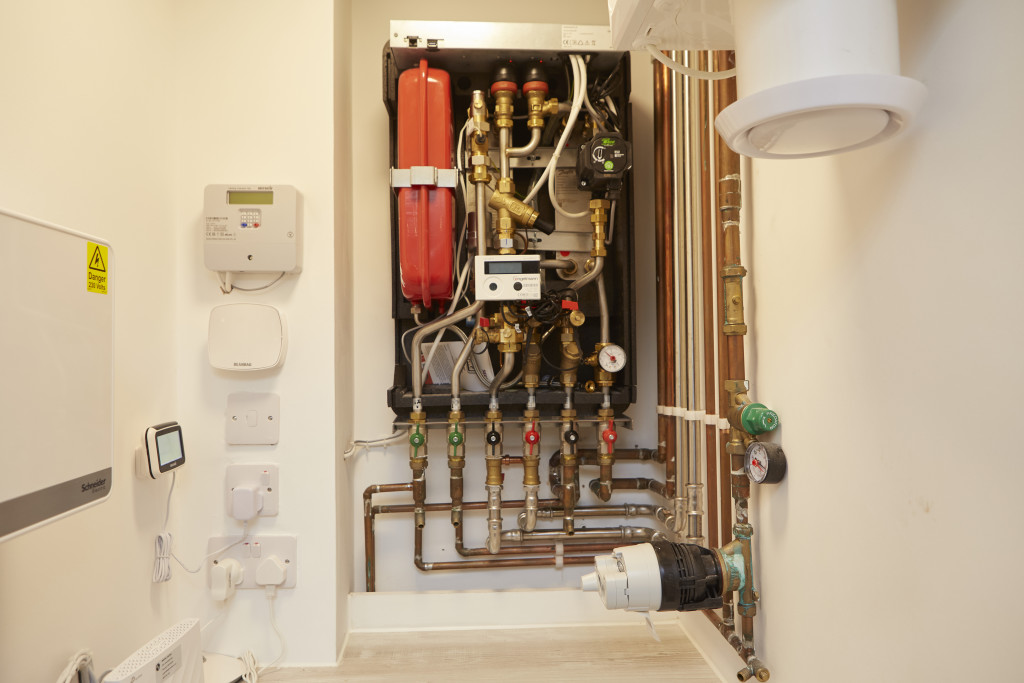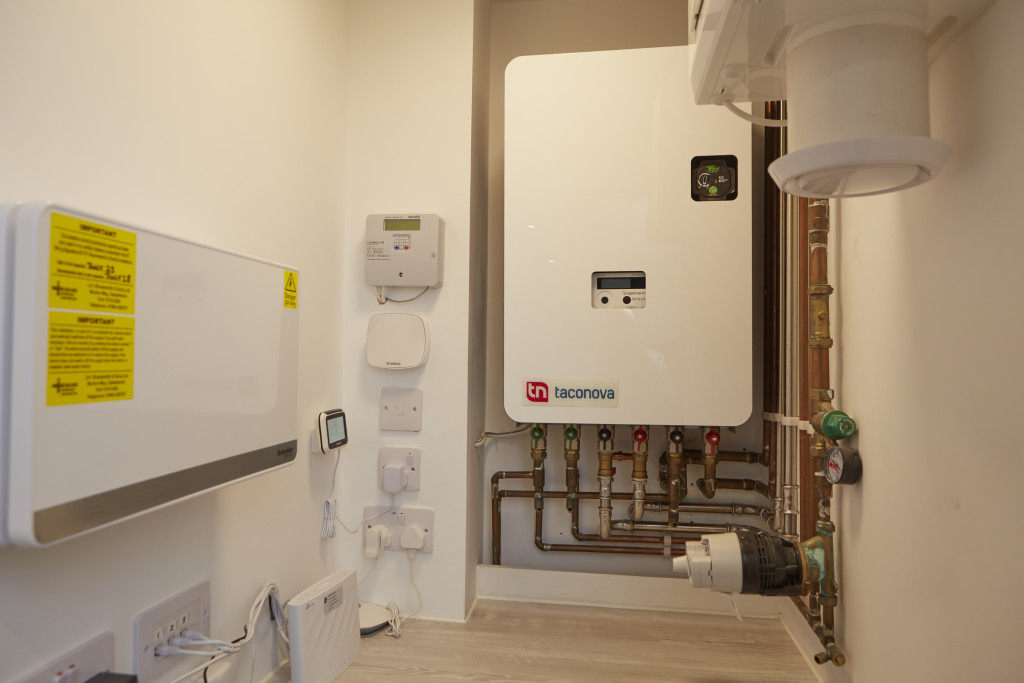20 year evolution

Tying in with our 20th anniversary issue Taconova UK’s General Manager, Behfar Abedinia, discusses how Heat Interface Units have prompted a significant shift in heating technology over the last 20 years, moving towards more efficient and sustainable solutions.
Over the past two decades, we have seen substantial contributions from various manufacturers in the development and evolution of heat interface unit (HIU) technology. The collective advancements in this field have been instrumental in propelling the industry towards enhanced efficiency and environmental sustainability.
Centralised heating solutions, driven by urban residential developments and the growing emphasis on energy conservation, facilitated an increase in the adoption of HIUs.
The industry’s commitment to innovation and adaptability was crucial in establishing HIUs as a viable option for a wide range of applications and heat sources, such as biomass, solar or heat pumps.
The early 2000s: Initial challenges and innovations
At the beginning of the 21st century, the UK’s heating systems predominantly relied on conventional gas boilers, and some argue it still does today. During this time, HIUs played a minor role in the heating market. Early HIU systems, innovative for their time, encountered efficiency and integration challenges. These challenges meant the industry players worked hard to improve the durability, efficiency, and compatibility of HIUs to make them more attractive and viable.
Mid-2000s to 2010s: Technological advancements and growing acceptance
The subsequent decade was characterised by landmark environmental commitments, such as the 2008 Climate Act, which committed the UK to reducing its greenhouse gas emissions by 80% by 2050 compared to 1990 levels. This commitment prompted significant technological progress in HIU systems. Advancements such as enhanced control valves and heat exchangers addressed the UK’s evolving heating needs and targets.
Centralised heating solutions, driven by urban residential developments and the growing emphasis on energy conservation, facilitated an increase in the adoption of HIUs. The industry’s commitment to innovation and adaptability was crucial in establishing HIUs as a viable option for a wide range of applications and heat sources, such as biomass, solar or heat pumps.
2010s to present: Integration of smart technology and focus on decarbonisation
The UK’s greenhouse gas emissions targets were strengthened in June 2019 and, as a result, the focus on decarbonisation intensified.
There was an even greater need for smarter, more adaptable heating solutions. Manufacturers integrated Internet of Things (IoT) capabilities into their HIUs. This development revolutionised heat management, enabling remote monitoring, real-time adjustments, and predictive maintenance. Moreover, innovative metering and billing solutions provide user-friendly and efficient management tools.
These technologies, enabled with open protocol for easy access to data, empower users to monitor and control their heating systems more effectively, leading to further energy savings and enhanced living environments.
Additionally, the integration of ‘cleaner’ renewable energy sources into district heating networks further highlights the role that HIUs could play in supporting the UK’s carbon reduction goals. This combination reflects a significant stride towards environmental sustainability.

The role and benefits of HIUs
HIUs have become integral to efficient heating systems, acting as intermediaries between central heat sources and individual hot water outlets. HIUs’ adaptability to various heat sources underscores their role in modern, sustainable heating solutions.
By using plate heat exchangers for indirect heating, HIUs facilitate energy transfer without requiring individual boilers. HIUs are very responsive and provide instant supply on-demand. There is no energy wasted from heat building up or dissipation after use.
In the last 20 years, Taconova has introduced innovations that have not only shaped industry standards but also directly addressed the needs of end-users. The company’s commitment to efficiency is evident in the development of HIUs, such
as the TacoTherm H 3000E, with the lowest VWART (Volume Weighted Return Temperatures) ratings, ensuring minimal energy waste and maximum heat transfer efficiency.
MHIUs offer excellent durability and are low maintenance. This reliability translates into cost savings and peace of mind for installers and end-users alike and showcases Taconova’s understanding of the practical demands of modern heating systems.
Looking ahead: Innovations for a Net Zero future
The landscape of heating technology is poised for further evolution, with a focus on cleaner heating solutions and the expansion of heat networks, propelled by initiatives like the Heat Network Efficiency Scheme (HNES). The ongoing advancements in material science, the potential incorporation of artificial intelligence in system management, and the potential for remote optimisation signal a promising direction towards energy preservation and achieving Net Zero emissions.
The industry’s journey towards sustainable heating
The journey of HIU technology over the past two decades highlights the industry’s dedication to innovation and environmental responsibility. The advancements in this period have laid the groundwork for modern heating solutions that prioritise efficiency, sustainability, and user comfort.
As the UK advances towards a greener future, the continuous evolution of HIUs will play a pivotal role in shaping efficient and sustainable heating systems. One thing is for sure, the ongoing pursuit of sustainable and efficient heating solutions continues to drive innovation for a more environmentally friendly future.







